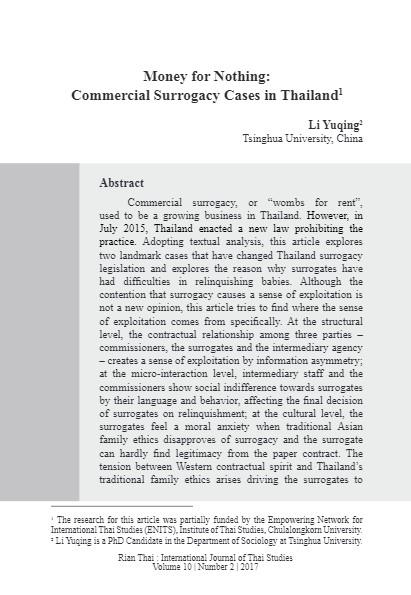Li Yuqing
Abstract
Commercial surrogacy, or “wombs for rent”, used to be a growing business in Thailand. However, in July 2015, Thailand enacted a new law prohibiting the practice. Adopting textual analysis, this article explores two landmark cases that have changed Thailand surrogacy legislation and explores the reason why surrogates have had difficulties in relinquishing babies. Although the contention that surrogacy causes a sense of exploitation is not a new opinion, this article tries to find where the sense of exploitation comes from specifically. At the structural level, the contractual relationship among three parties – commissioners, the surrogates and the intermediary agency – creates a sense of exploitation by information asymmetry; at the micro-interaction level, intermediary staff and the commissioners show social indifference towards surrogates by their language and behavior, affecting the final decision of surrogates on relinquishment; at the cultural level, the surrogates feel a moral anxiety when traditional Asian family ethics disapproves of surrogacy and the surrogate can hardly find legitimacy from the paper contract. The tension between Western contractual spirit and Thailand’s traditional family ethics arises driving the surrogates to break the original commercial contract. “Emotional bodies” and “civilizing bodies” theories help to understand the origins of the sense of exploitation, the cultural meanings of bodies, and also shed light on policy-making of surrogacy.
(Published in Rian Thai: International Journal of Thai Studies, Volume 10/2017 (Number 2), Page 165-184)
Full Text : Download
